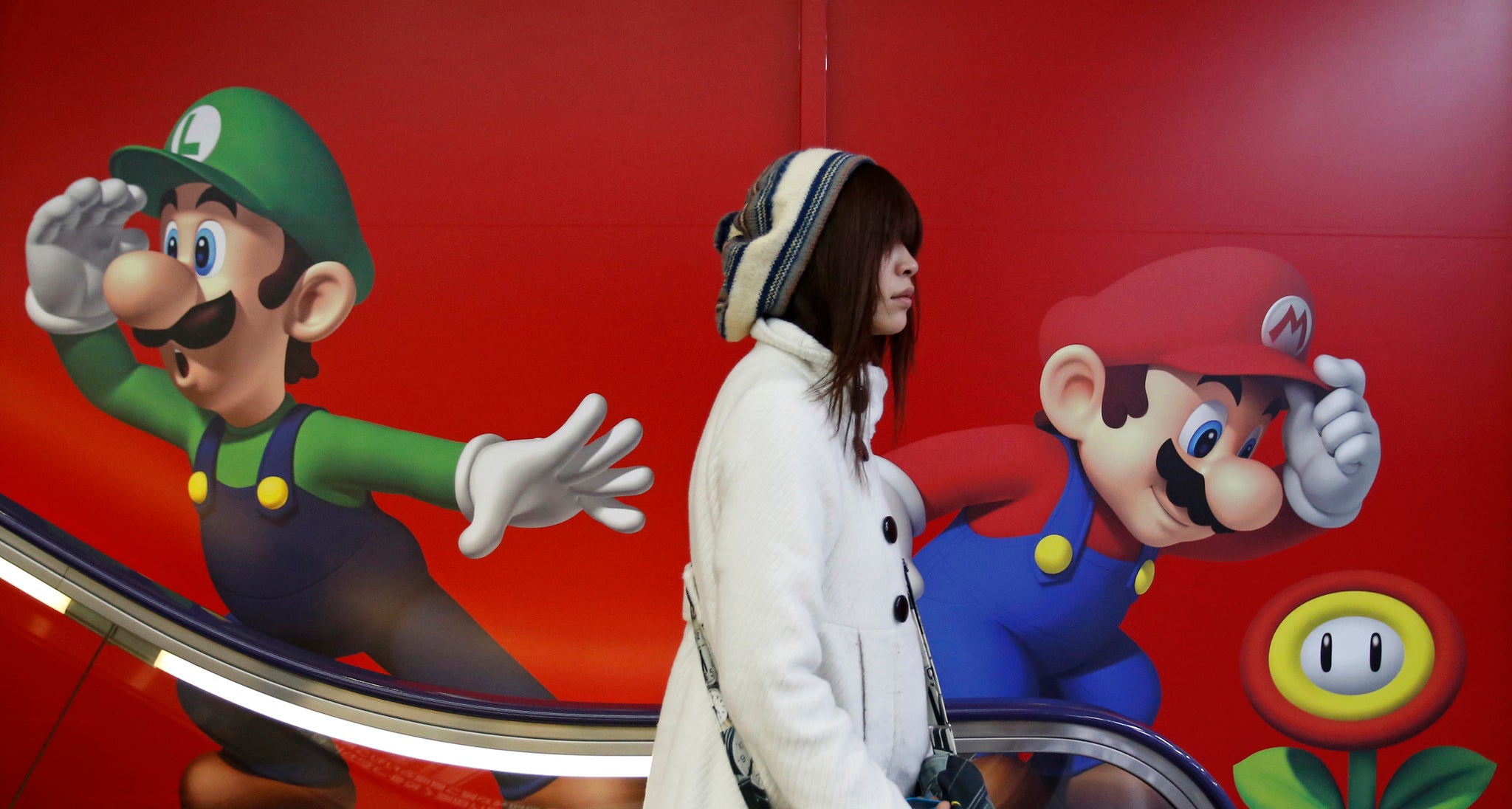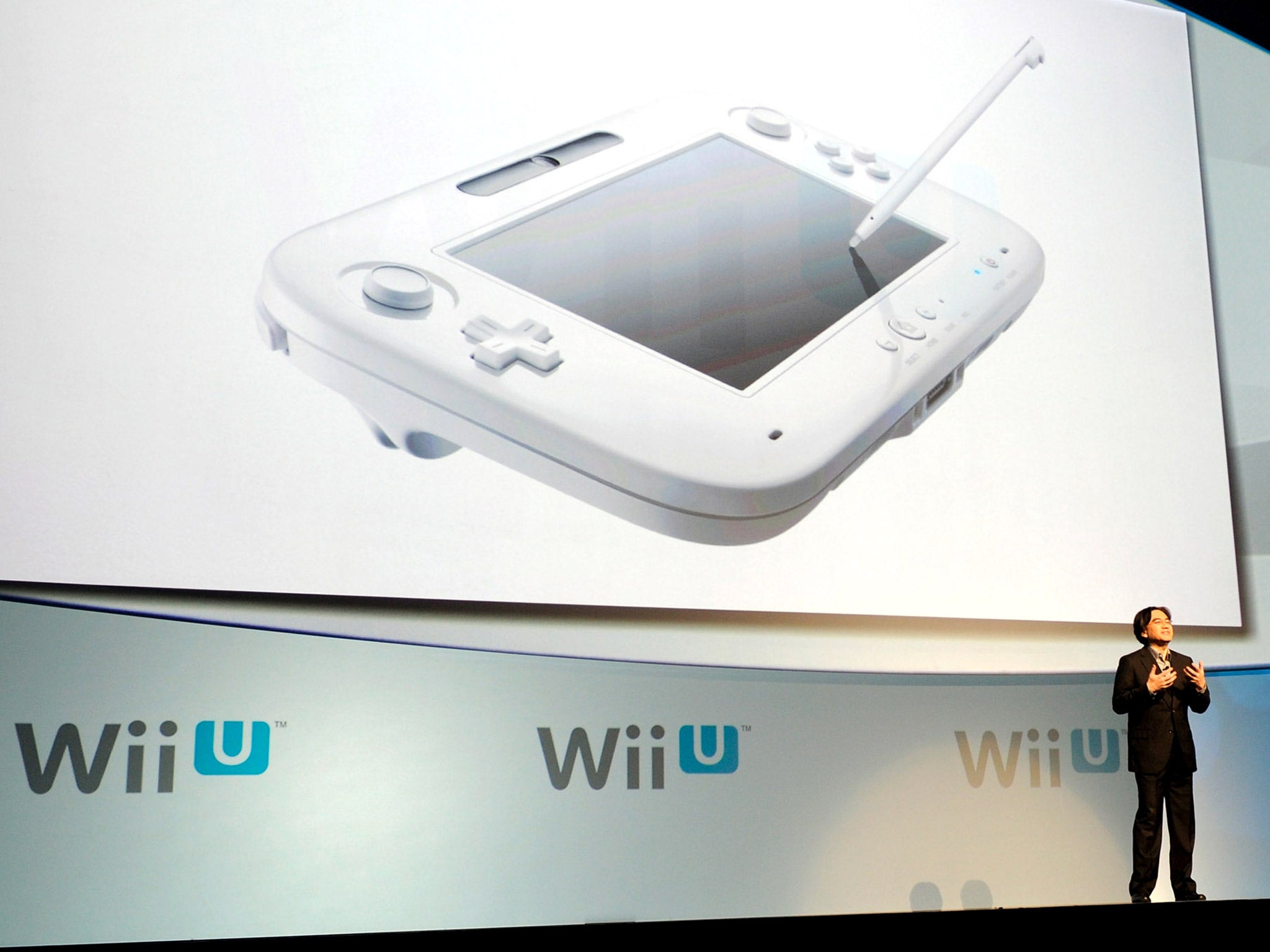Nintendo 'studying smart devices' as shares tumble
The Japanese gaming giant slashed its sales forecast after its Wii U console failed to sell over the holiday period

Your support helps us to tell the story
From reproductive rights to climate change to Big Tech, The Independent is on the ground when the story is developing. Whether it's investigating the financials of Elon Musk's pro-Trump PAC or producing our latest documentary, 'The A Word', which shines a light on the American women fighting for reproductive rights, we know how important it is to parse out the facts from the messaging.
At such a critical moment in US history, we need reporters on the ground. Your donation allows us to keep sending journalists to speak to both sides of the story.
The Independent is trusted by Americans across the entire political spectrum. And unlike many other quality news outlets, we choose not to lock Americans out of our reporting and analysis with paywalls. We believe quality journalism should be available to everyone, paid for by those who can afford it.
Your support makes all the difference.Nintendo suffered a drop in its share price of as much as 18 per cent after the gaming giant issued a significant profit warning last Friday.
The 125-year-old company has reduced its net profit forecast for the year ending March 2014 from 55 billion yen ($527m, £320m) to a net loss of 25 billion yen.
The dramatic change in fortune was blamed mainly on weak sales of the company’s Wii U console over the holiday period, with the sales forecast for the device cut by nearly 70 per cent, from nine million to 2.8 million units.
This was matched by a corresponding dip in software sales, with the forecast of 38 million Wii U titles cut in half.
The forecast for sales of Nintendo’s handheld gaming console, the 3DS, were also reduced, from 18 million to 13.5 million units.
The net loss is only the second in Nintendo’s 52 years as a public company, but follows hard on the first, announced in 2012.
Analysts suggest that the company’s traditional business model (selling hardware cheaply and recouping profits on the software) is the reason for the failure.

The company has been stuck in the ever-shrinking middle ground of the gaming industry, as rivals Sony and Microsoft have launched high-powered consoles that also double up as media devices, and the casual gaming market has been cannibalised by smartphones and tablets.
Last week Nintendo president Satoru Iwata suggested that the company would have to re-evaluate its position in the market, declaring that he was “thinking about a new business structure”.
“Given the expansion of smart devices, we are naturally studying how smart devices can be used to grow the game-player business. It's not as simple as enabling Mario to move on a smartphone,” said Iwata.
Until now Nintendo has been hostile towards the smartphone market, dismissing these cheaper titles as offering short-term profits but eroding long-term value.
Transporting well-loved characters such as Mario and Link onto mobile devices would mean that Nintendo would no longer control the entire gaming experience, forcing them to rely on the cheap hardware powering many Android devices.
“If we think 20 years down the line, we may look back at the decision not to supply Nintendo games to smartphones and think that is the reason why the company is still here,” said Iwata.
He company is expected to hold a strategy event on 30 January following the full announcement of its third-quarter results.
Join our commenting forum
Join thought-provoking conversations, follow other Independent readers and see their replies
Comments